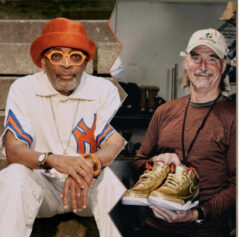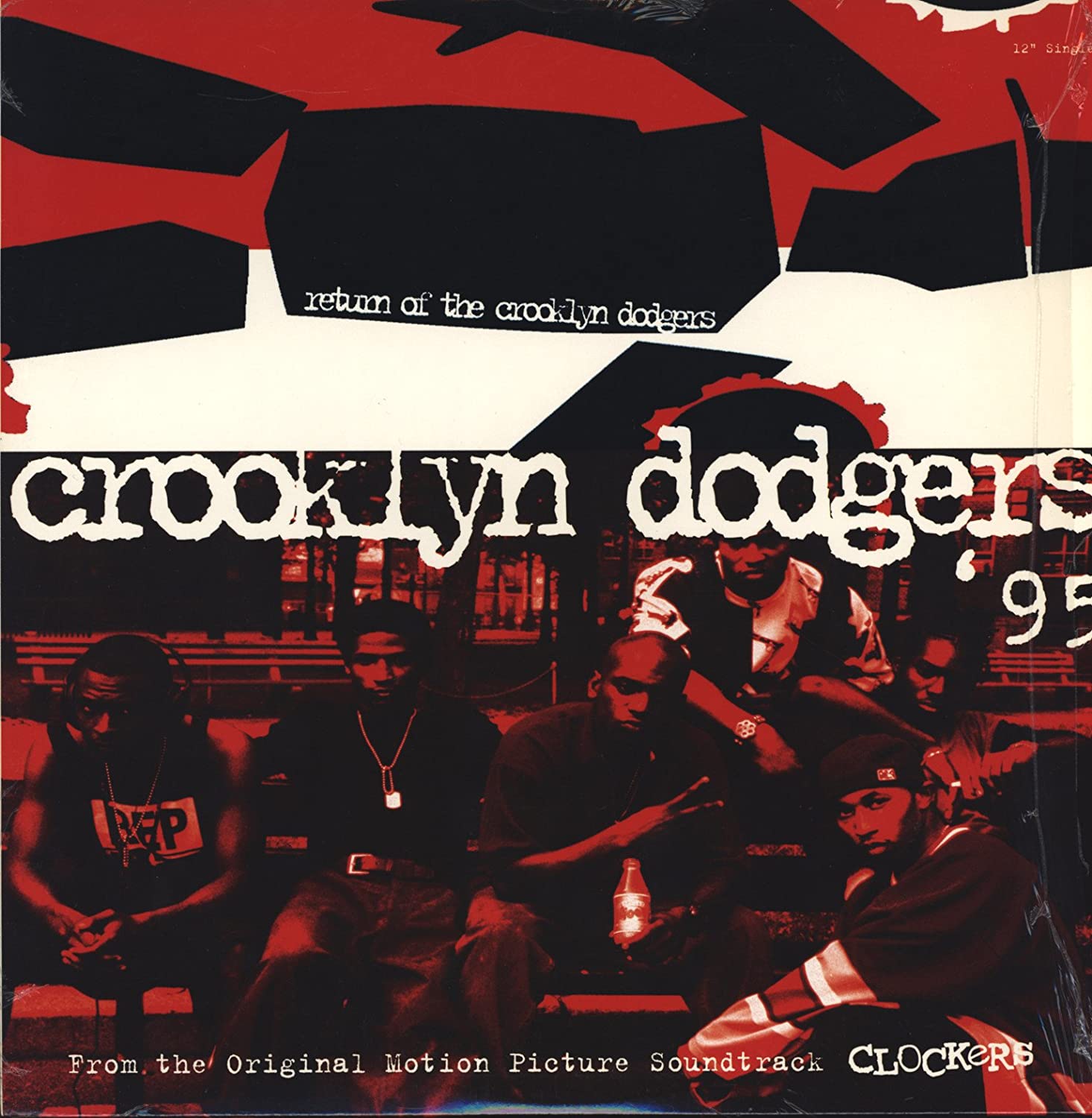June 30, 1989 goes down in history as the day Do the Right Thing opened in theaters. Produced by Lee’s 40 Acres and a Mule Filmworks and distributed by Universal Pictures, its $6 million budget was huge for an independent black film produced in the late '80s. Bringing in over $37 million at the box office, Do the Right Thing’s haul, as far as gate receipts for a black film at that time, was impressive.
Do the Right Thing takes place in the Bedford-Stuyvesant section of Brooklyn, NY. Starring Spike Lee as Mookie, a pizza delivery boy trying to get by during a hot summer day in 1989. Things in the neighborhood take a turn for the worse as several pivotal societal collisions over race and class combine with the heat to ignite a powder keg of emotions into an explosive climax.
Some felt that this drama/comedy was too broad and featured too many characters and peripheral story lines. But part of its charm was the way that Do the Right Thing cast a God’s eye view over the many different demographics that lived within the hood. There was Mookie (Spike Lee), a rather unambitious young African-American male who supports his girlfriend Tina (Rosie Perez) and son Hector with wages from delivering pizza at Sal’s Pizzeria. While Sal (Danny Aiello), was a grumpy Italian-American proprietor of Sal's Pizzeria, Da Mayor (Ozzie Davis), was an older black gentleman who stumbled around after enjoying a mid-afternoon drink or three. Mother Sister (Ruby Dee) was an older African-American woman who observed the goings-on of the neighborhood from her window. And Radio Raheem (Bill Nunn), is the imposing figure with an even more imposing boom box radio that only plays Public Enemy’s “Fight the Power” on blast. Vito (Richard Edson), Sal’s youngest son, is a friend to Mookie. And Buggin’ Out (Giancarlo Esposito), is a somewhat antagonistic neighborhood figure and Sal’s Pizzeria customer. Pino (John Turturro), who constantly complains about being the last Italian family still doing business in the neighborhood, is openly racist toward his father’s black customers.
Some who appeared in the film went on to become cinema superstars. Many recall that Do the Right Thing was Rosie Perez’s film debut and the first movie appearance made by Martin Lawrence as well. Other notable characters that were essential to the tapestry of Do the Right Thing were Mister Senor Love Daddy, a local DJ played by Samuel L. Jackson. And Smiley (Roger Guenveur Smith), a disabled man who attempts to sell pictures of Martin Luther King, Jr. and Malcolm X. The late Robin Harris was Sweet Dick Willie.

The success of Do the Right Thing wasn’t just about the genius of Spike Lee, but also its controversial timeliness. 25 years ago, those outside urban America simmered with tensions over believing that an exceptionally hot day in the hood could boil to the surface. Thanks to this poignant offering by Lee, the world now has an honest artistic recollection of what those scorching ghetto summers can do to the hearts and minds of the weather-weary masses.
As we look back in time at this part funny, part tragic offering it may be difficult to remember the racial undertones that were inherent in American society in 1989. The racist 1986 attack that led to the death of 23-year-old Michael Griffith in Howard Beach, Brooklyn was still fresh in the minds of African-Americans across the nation. Jesse Jackson had recently sought the Democratic presidential nomination in 1988. Two months after the film's release, in August 1989, the death of Yusuf Hawkins came by gunshot wound at the hands of a racist mob in the predominately Italian-American community of Bensonhurst, New York.
At the time, political columnists were overflowing with racist concerns of wild Negroes in the city streets. Prior to the release of Do the Right Thing, there was much consternation, whether manufactured or genuine, regarding the film’s negative impact on the African-American community. Even a few well-respected journalists felt the film would not only negatively impact the African-American community in the inner city, but it could also have an effect on the political climate in New York City at the time. Most notable among these detractors was Jack Kroll, a columnist for Newsweek at the time. David Denby, then writing for New York Magazine, and Joe Klein, who also was a columnist for New York Magazine. All thought Spike Lee was a provocateur of insurrection.

“It’s a comedy that ends in tragedy; a spectacle of black victimization by whites and white victimization by blacks; a demonstration of pointlessness of violence that is also a celebration of violence. Do the Right Thing is going to create an uproar—in part because Lee, a middle-class black hoping to capture the anger of the underclass, is thoroughly mixed up about what he’s saying.’’ David Denby, New York Magazine June 26, 1989.
“Before Do the Right Thing was released, they thought it was going to insight black folks to riot all across the country,” said Spike Lee while speaking at this year's American Black Film Festival. “They also said this film would make David Dinkins lose the mayoral election. They said David Dinkins was not going to be the first black mayor of New York because of this film. The film came out June 30th, the primary was September 10th and because this film was going to start a riot and blood would be on my hands, I would be personally responsible for David Dinkins not winning. Until this day, Joe Klein never says anything about those reviews. It was just racist because what they’re saying is that we as black people are incapable of being intelligent. We can’t tell the difference between what’s on a screen and what’s real life. We would come out the theater wreaking havoc. As brother Malcolm would say, run amok. All this because Mookie threw a garbage can through the window of Sal’s Pizzeria. It still gets me mad.”
Today, we see that Do the Right Thing added to the ongoing discourse regarding race and class in this country and we’re all better for having been made aware of the inherent dichotomy therein thanks to an offering by a man who has become the director of note on such issues throughout his career. However, the somewhat ambiguous nature of the film's central message stands as its redeemer and some would say accuser as well. In the movie's end, quotes by two of the foremost leadership figures in the African-American mindset appeared on screen. A positive move that illustrated the dualistic nature of struggle in America, others lambasted it for including Malcolm X’s quote, interpreting it as being in support of wanton violence.
Violence as a way of achieving racial justice is both impractical and immoral. It is impractical because it is a descending spiral ending in destruction for all. The old law of an eye for an eye leaves everybody blind. It is immoral because it seeks to humiliate the opponent rather than win his understanding; it seeks to annihilate rather than to convert. Violence is immoral because it thrives on hatred rather than love. It destroys a community and makes brotherhood impossible. It leaves society in monologue rather than dialogue. Violence ends by defeating itself. It creates bitterness in the survivors and brutality in the destroyers.
– Dr. Martin Luther King, Jr.
I think there are plenty of good people in America, but there are also plenty of bad people in America and the bad ones are the ones who seem to have all the power and be in these positions to block things that you and I need. Because this is the situation, you and I have to preserve the right to do what is necessary to bring an end to that situation, and it doesn't mean that I advocate violence, but at the same time I am not against using violence in self-defense. I don't even call it violence when it's self-defense, I call it intelligence.
– Malcolm X



